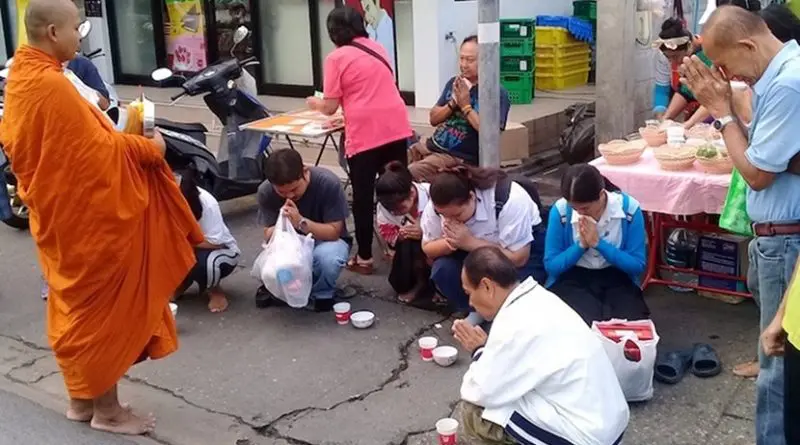Buddhist Kingdom Of Thailand Caters To Muslim Tourists
By IDN
By Setiawan Liu
An Indonesian tourist found the Buddhist majority Thailand more comfortable than the Christian-majority Netherlands where she had gone a few years ago. It is because Thailand – whose major revenue earner is tourism – has developed its tourism industry to cater for the multicultural tourists of today.
“Thailand is not the first country I have traveled,” Vergina Andini Putri, a 30-year-old Indonesian Muslim female who visited the Buddhist kingdom recently with two of her Muslim female friends, told Lotus News.
“When visiting Wageningen university (in the Netherlands) for my three-week short course, I have to adjust myself to such an awkward situation; pork was served (when I stayed there at the university) for every meal.” She added that though it was uncomfortable to eat in such an environment, “I was not worried, and I was always relaxed.”
For Putri and her friends, Thailand offers wonderful tropical weather, fascinating culture and history, picturesque countryside, stunning beaches and so much more. Although the country has not developed a fully-fledged Halal food industry, yet, for tourists from all over the globe they have much choice. There are some convenience stores such as ‘Seven Eleven’ in which Muslim tourists still can find halal food.
Thailand’s south has a substantial Muslim population, and It was no surprise, by the time Putri arrived at Phuket international airport, she found a counter sales person wearing hijab (Muslim headscarf). At that time, she needed to replace SIM card for international roaming. “I felt more and more sure that everything is safe here,” she said.
She found many food vendors wearing hijab too in some spots throughout the Island. “Besides, the situation was not different from the Indonesian island of Bali in which Hindu communities reside in large numbers (Bali is in fact about 83 percent Hindu),” noted Putri.
With tourism playing a major role in the country’s economy, and increasing numbers of Muslims visiting Thailand from neighbouring Muslim countries, as well as far away from the Arab world, the needs and desires of all religious groups are taken into account.
While Buddhism is the most practiced religion in Thailand (with about 95 percent of the population describing themselves as Buddhists), yet Muslim tourists will be pleased to hear that Muslim-friendly airport facilities in Thailand are also available, including at some of the country’s major airports. “I could find a (small) praying room. Because I arrived very late at night, and failed to catch midnight bus. We slept in the airport, and woke up around six,” said Andini.
Halal is a term designating any object or an action, which is permissible to use or engage in, according to Islamic law. The term is used to designate food seen as permissible according to Islamic law. There are some products, which can be purchased in Indonesia that Muslim tourists can carry during the travel. But, in Thailand, some items are attached with halal labels on the packaging.
A special Muslim-friendly travel application was launched by the Tourism Authority of Thailand (TAT) two years ago to help Muslim travellers in Thailand and has been enhanced with translations into Arabic and Bahasa Indonesia. Along with the original Thai and English; this means the application is now available in four languages.
Other new features included in the Muslim-friendly travel application include prayer timings as well as the important dates in the Holy Month of Ramadan. The application is part of the strategy to position Thailand as a Muslim-friendly destination. This strategy is primarily aimed at the 240 million-strong Islamic populations of Indonesia, Malaysia and Brunei, whose tourism potential is expected to grow strongly as the ASEAN integration process advances.
“I have seen ‘Muslim Care Thailand’ environment starting from the counter (in the airport) on to another (tourist) destination including Bangkok. Some halal labels are attached to items in every store such as sandwich, milk, etc. If it contains pork, (the label) shows the word ‘pork’. Items which are halal, (customers) can find tuna fish, vegetable as ingredient,” notes Putri.

